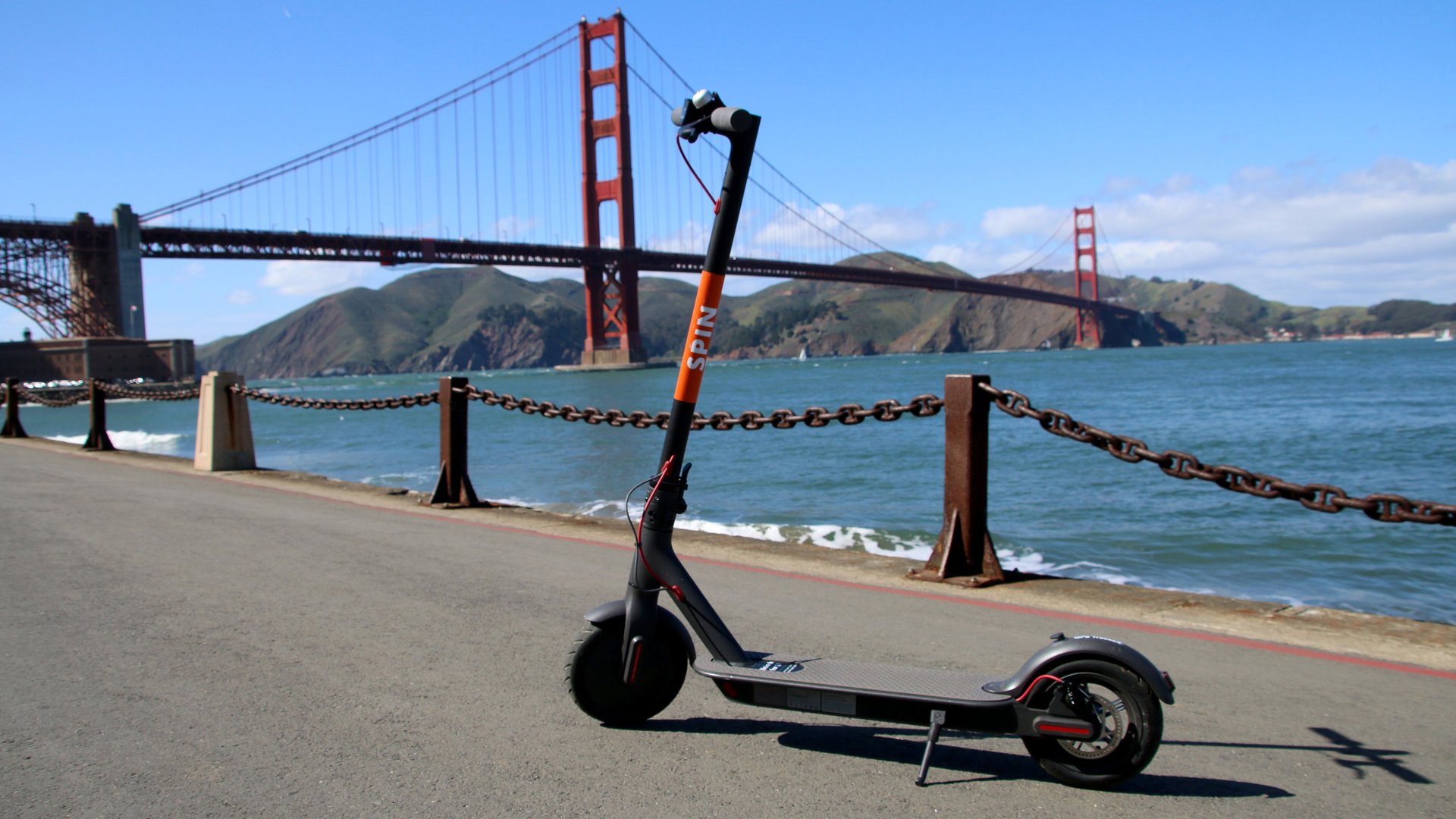San Francisco just showed scooter startups it won’t tolerate bad behavior
San Francisco has issued permits to two companies—Skip and Scoot—while flipping the bureaucratic bird to 10 others who applied today (Aug. 30). Under the pilot program, the companies will be allowed to operate 1,250 scooters over the next six months, with the number potentially doubling in the second six months.


San Francisco has issued permits to two companies—Skip and Scoot—while flipping the bureaucratic bird to 10 others who applied today (Aug. 30). Under the pilot program, the companies will be allowed to operate 1,250 scooters over the next six months, with the number potentially doubling in the second six months.
Twelve companies were vying to be included in San Francisco’s year-long pilot, which the San Francisco Municipal Transit Agency (SFMTA) announced in May. The unsuccessful contenders were Bird, Spin, Lime, Jump (owned by Uber), Lyft, Ofo, Razor, Ridecell, Hopr and Uscooters. (Scoot previously operated in San Francisco just as a dockless moped company since 2012.)
The SFMTA ranked all of the applicants on a range of factors, such as how well they educate users on safe riding practices, their experience operating logistics businesses, and how they’ll ensure their scooters are redistributed to low-income residential areas. Bird and Razor performed the worst on the SFMTA’s matrix.
“We are open to the kind of innovation the private sector is bringing particularly if can help reduce traffic congestion and improve performance of our (transit) system,” Tom Maguire, the transit authority’s director of livable streets, said at a press conference announcing the selection. “We expect private operators who operate in public right of way will serve the public interest.”
Maguire’s subtext was loud and clear: Play by our rules, or we won’t allow you on our streets.
Earlier this spring, Bird, Lime, and Spin unleashed hundreds of electric scooters in San Francisco, seemingly overnight. San Franciscans had mixed reactions—some bemoaning the two-wheeled vehicles strewn on city sidewalks, others enjoying the fun and convenient transportation alternative.
The city, on the other hand, was unequivocal in its stance. San Francisco officials impounded dozens of wayward scooters and issued cease-and-desist letters to the three companies, who all stopped their operations in early June. Bird, which was one of the first startups to popularize the dockless scooter craze, was founded by Travis VanderZanden, a former Lyft executive who jumped to Uber, and was sued for allegedly taking trade secrets along with him.
The so-called scooter wars are an embodiment of the “ask for forgiveness, rather than permission” mantra, popularized by the ride-sharing giant Uber, and VanderZanden undoubtedly followed its playbook when dropping his scooters on cities. He apparently only alerted the mayor of Santa Monica (via LinkedIn message, no less) after the startup had placed scooters all around the town.
When innovation butts up against regulation, though, regulators often tend to get the last word.
However, in Bird’s home turf in Santa Monica, regulators seemed to be far more forgiving. Lime, Lyft, Jump, and Bird were all given permission to operate in the town today, as part of a 16-month trial beginning next month.